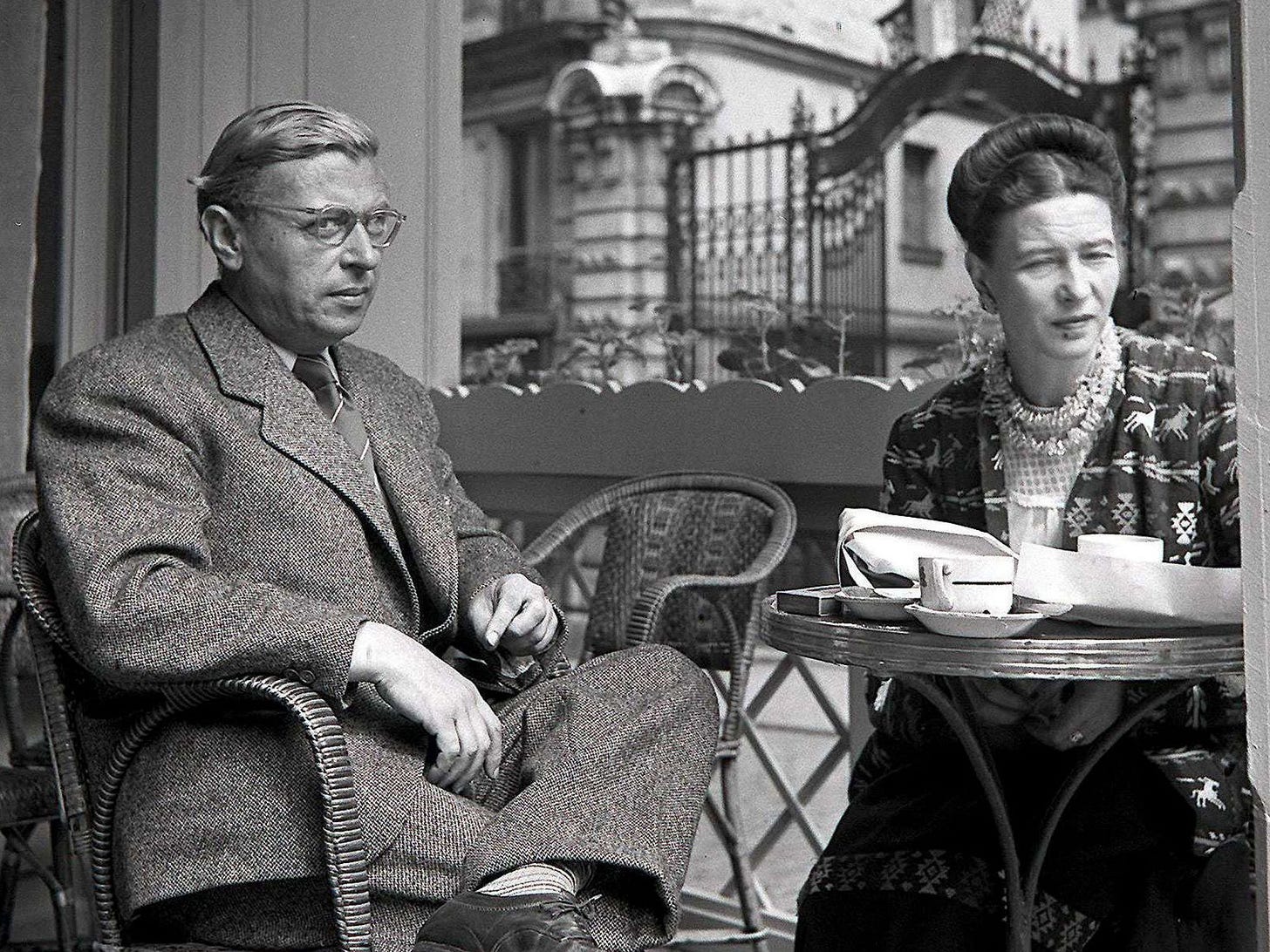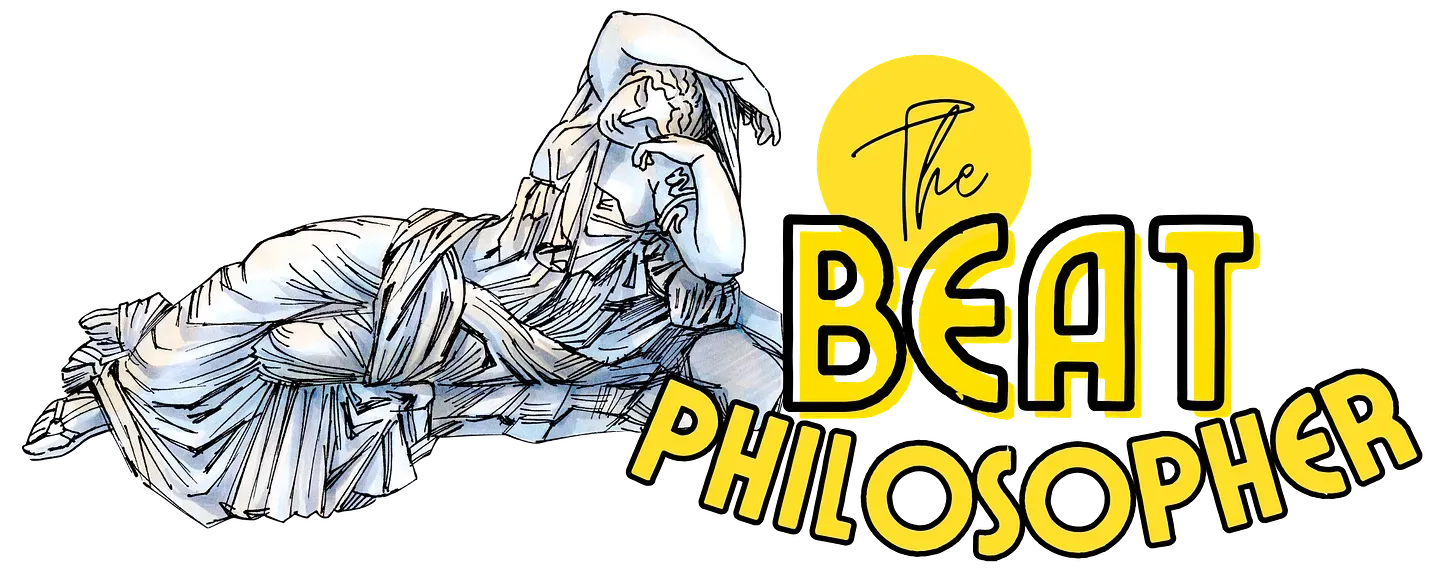Free Will Part 2: Sentient Movement, Anxiety of Choice, Religious Determinism
Being alive, sentient movement, & existing in entropy
This is Part 2 of a Part 3 Series on Free Will:
Part 1: Quantum Mechanics, Material Determinism, & Occam’s Razor
Part 2: Being Alive, Sentient Movement, Religious Determinism, & The Anxiety of Choice
Part 3: Intelligence & Willpower Via Causal Relationships
Part 2: Being Alive, Sentient Movement, Religious Determinism, & Anxiety of Choice
I want to talk about what it means to be alive. Because in my view, there’s no point in being alive if you have no force with which to move yourself.
Essentially - to be alive is to be a force.
I’m not saying this to begin a fruitless discussion about life. I want to begin with a simple axiom that isn’t controversial. (And if you agree with me already, you can skip ahead to a few paragraphs below).
So what’s the most non-controversial way we can describe life? Here’s a biological definition.
Living things are made up of organized structures that have metabolism, growth, reproduction, homeostasis, and a response to stimuli.
But there is a philosophical commonality in those biological processes: it’s that autonomous movement is an inherent part of identifying life.
It’s an understated function we take for granted in the free will debate because to call something alive and then claim that it behaves as an inert object, doesn’t really allow us to distinguish it from an inert object.
To be inert is to be moved by forces greater.
A rock is inert, so in order for a rock to move, a force greater than the rock must move it.
But a living thing has the ability to be a force that moves itself.
But before you overthink the notion of movement: not all movement by living organisms is the same. There are different types––one of which, might be called the “biological life-force.”
A tree, for example, converts sunlight, water, and carbon dioxide into energy and uses that energy to grow or regenerate itself.
Therefore it’s alive.
Our bodies have an ability to grow because they’re alive. The beginning cells of an embryo in the womb grow themselves, despite having no brain or willpower.
So the basic components of a biological life-force are the ability to consume energy and convert that into a biological movement one might call “self-growth.”
To grow itself is the first building block of “aliveness.”
But there’s one more interesting qualification for biologists to detect life and it’s: “a sensitivity or a response to stimuli.”
In the examples given by biologists, organisms can move towards or move away from a stimulus. That includes light, sound, or touch. For example, plants sitting on a windowsill can change the direction of growth in order to grow towards the light.
It may not be considered a dramatic movement. But essentially: to be alive on the level of a basic organism is to have the ability to move towards or away from something.
This is “response to stimuli” - but it is not being “an effect of stimuli.”
The sun doesn’t determine that a plant moves. A plant moves itself towards the light.
Now a tree can respond to light, but it can’t get up and walk away like an animal can.
So there is a further kind of movement of being alive. And for the purposes of this discussion I’m going to call it:
Sentient Movement
Animals have sentient movement caused by electrical activity. Biologists aren’t clear on what causes this electrical activity or “consciousness.” And I’m not here to open up that debate. Nor to suppose that biologists will have an answer to it any time soon.
But for all we don’t know about how this electrical activity works… even biologists can clearly see that sentience has a top-down causation that enables the “higher regions” of electrical activity to move the “lower regions.”
For example:
The cells in your arm, by virtue of being alive, can merely grow.
But the brain can tell the nerves in the arm to move up and down or back and forth.
These are two different movements of being alive. A tree can grow but cannot get up and walk. While an animal can.
Thus, an animal possesses some type of top-down causation enabling it to move itself beyond the initial biological life-force of the cells.
Sentient Movement is a really easy way of summing up this mysterious phenomenon of top-down causation.
Because all animals possess some movement. So all animals must possess some electrical activity that enables sentient movement.
How complex the electrical activity of an animal is - is up for debate. But here’s my point: to be inert is to be moved by forces outside of ourselves. A rock will move if water carries it down stream.
But unlike a rock, an animal is alive. And thus, it has the capability to use “sentient movement” to move its arms to swim and become a force that can combat the force of the water, so that they’re not carried downstream.
Furthermore, if this animal were passed out, it would behave more like the rock. Or at least more like a limb of the tree. It would simply float down the stream.
Thus, to be unconscious is to lose a huge portion of the sentient top-down causation. Being knocked unconscious temporarily pacifies our willpower.
So for the purposes of this article,
A simple impetus to move in a direction because of something we’d like to gain - that’s a huge part of being our own force in the world.
We move ourselves towards something or away from something. And this is an exercise in sentient movement or “the will to move.”
But you can see that the “will to move” is an advanced stage of aliveness. It’s the progressively more complex version of being alive.
Rocks are inert and can’t grow or move.
Trees and plants merely grow.
While animals grow AND move themselves to and fro.
We often call this, simply, “willpower” or “will.” But I like the phrase “sentient movement” better. And I think this sentient movement is the beginning of what humans see as free will.
So, is there anything we can agree on so far?
In Part 1 of this 3-part series, I discussed quantum mechanics and causal relationships. My purpose was to break things down into, perhaps, logical axioms that we could all agree on - so that we can move forward from here.
Someone commented that it was pseudoscience to draw conclusions about free will from quantum physics. But I could just as easily ask, “And drawing the inference that we don’t have free will because of the Big Bang Theory isn’t pseudoscience?”
Determinism is 100% pseudoscience. But it’s helpful to remember that science hasn’t resolved what consciousness IS, how it was created, why it exists in a material world so different from it.
And so there IS no science of consciousness, yet - or perhaps in our lifetime.
Anyone who tries to make you believe that science has resolved the critical mysteries of consciousness is making inferences. And these inferences can be relatively summed up as pseudoscience.

My purpose here isn’t to convince you that science has the answers to this mysterious phenomenon of consciousness that we’re using to have this discussion.
My purpose is to share with you how even basic principles in quantum physics and biology are not antagonistic towards a concept of willpower. Or chance.
So I’m okay with taking these basic axioms and moving ahead to say that:
My concept of free will is based on two things:
spontaneous movement, &
the intelligence to learn causal relationships
But I didn’t borrow this idea of spontaneous movement from quantum mechanics. Actually, I came up with the idea because when I looked around me and tried to find the origin of most of the movements that sentient animals on this planet make… I couldn’t find intentionality in all of them. But I could find freedom.
Remember, to be alive can loosely mean to move oneself.
But is every movement one takes, one of intentionality? Or is it merely one of “free movement?”
To say that you have the capacity for spontaneous movement is a kind of freedom.
The ability to spontaneously move is the ability to freely move.
To be alive means you can move randomly. Chaotically.
Going back to Carlo Rovelli’s description of the behaviors of an atom:
“An electron is not obliged by nature to move toward the right or the left––it does so by chance.”
To be free - even on the atomic level, is to randomly move left or right. Without a determined reason for this movement.
In my view, to be alive means to move freely.
Spontaneous movement is freedom.
And I think this describes animals really well.
A huge portion of their movements don’t come out of a pre-determined cause. There is no design for each and every gesture they make to and fro. Even basic instincts that optimize survival only give the animal purpose.
But most of the actions taken for eating, or while running are still filled with spontaneous movement. Animals exist freely. Moving freely. Moving randomly.
To be alive means to randomly exist. Randomly move. Chaotically exist. Spontaneously move.
Not every movement has order. Spontaneous movements can be considered entropy. Disorder.
“Top-down causation?” Perhaps it’s better to say, you exist as your own top-down entropy.
So, yes, a basic premise of my version of free will is to say that when we exist in randomness, I mean there actually isn’t a point to each and every gesture you make.
You make thousands of random movements throughout the day. But there ISN’T an assigned intentionality to each and every movement.
If this is so simple, then why has randomness been ignored?
Perhaps the reason we ignore our own randomness, is that once you have already built a worldview on the premise that your actions have meaning… it’s difficult to begin to see your actions as random without falling into an existential crisis or a moment of depression and nihilism.
Is Randomness Anti-Religious?
I want to pause to say that randomness in willpower is a really simple, understated concept. But it’s impossible to talk about it without mentioning how deeply the religious mentality is intertwined with our conception of the universe.
Because before materialistic determinism, we actually always told ourselves a story of determinism. Only it was religious determinism.
We essentially said: the universe was created for a reason.
Stop me if you’ve heard this:
In the beginning, God created the heavens and the earth. Now the earth was formless and empty, darkness was over the surface of the deep, and the Spirit of God was hovering over the waters.
And God said, “Let there be light,” and there was light. God saw that the light was good, and he separated the light from the darkness. God called the light “day,” and the darkness he called “night.”
The Lord God took the man and put him in the Garden of Eden to work and take care of it. And the Lord God commanded the man, “You are free to eat from any tree in the garden; but you must not eat from the tree of the knowledge of good and evil, for when you eat from it you will certainly die.”
The Lord God said, “It is not good for the man to be alone. I will make a helper suitable for him.” So the Lord God caused the man to fall into a deep sleep; and while he was sleeping, he took one of the man’s ribs and then closed up the place with flesh. Then the Lord God made a woman from the rib he had taken out of the man, and he brought her to the man.
The man said, “This is now bone of my bones and flesh of my flesh; she shall be called ‘woman,’ for she was taken out of man.”
And I just want one thing to be pointed out here: this version of the universe has intentionality.
It was created with a purpose.
What every religious person feels deep within their bones is that our universe is one of inherent purpose. It was created by a reason and for a reason.
Even many people who are not religious, still subscribe to this fundamental paradigm of meaning.
Even when we talk about quantum mechanics as, on the atomic level, having chance or randomness, and physicists only being able to measure this chance via probability calculations, you recall that Einstein, controversially, did not like the direction quantum theory was going in.
And what did he say?
“God does not play dice.”
Even a man of hard science used the language of God to parallel material determinism with religious determinism.
In religion, the universe is designed by a being who has intentionality, purpose for life, and gives human beings meaning.
In the materialistic universe, when we can calculate all of the deterministic causes preceding an event, it can be implied that the universe exists in a state of order. It has intention. It has a causal reason for existing.
For a lot of people in this world, randomness equates meaninglessness.
And it fucking terrifies people.
Still today people say,
“This is meant to be.”
“I was meant to meet you.”
“I was meant to learn this lesson.”
“Everything has a purpose.”
“God wouldn’t give you anything you couldn’t handle.”
And thus, a huge connotation within the people who use the term “free will” is its intentionality. Our willpower must be orderly or intentional, because it’s believed to be part of a structurally meaningful universe.
The idea that willpower would be connected to chance more than order makes willpower cease to have meaning for a lot of people.
In the conceptualization of a meaningful universe, there’s no concept of freedom without intentionality.
For this reason, there are many people who - just like Einstein - will resist the idea of random, spontaneous movement. The idea that humans exist for no reason. Do things for no reason. Just like animals, we predominantly move to and fro meaninglessly.
A lot of people don’t feel comfortable with the idea that most of our actions don’t make sense. Don’t have intentionality.
That we exist, not as an orderly causal design of a materialistic universe.
No, we exist as a chance movement. We exist as a breathing, sentient host for entropy.
But what if, paradoxically, this is where freedom begins?
Or what if, more accurately, this is where the point of conversion from disorder to order begins?
The Existentialists have a slightly different view of meaninglessness.
Out of the premise that God doesn’t exist, some Existentialists realized that this might transform our worldview into a view with inherent nihilism.
Okay, there is no God to create a meaningful universe. Perhaps there is no meaning. There is no purpose. There is no destiny. I’m not meant to do anything.
But some Existentialists then created the secondary conversation that comes after the initial depression or shock wears off.
This secondary conversation says: I am now free to make my own meaning.
I mean, if God created the meaning for you, you never truly had free will. If a material universe created the deterministic framework for your choices, you also never had free will.
In essence, to exist in a random universe is actually more meaningfully free than most of the frameworks we’ve been existing in for centuries.
But it puts the burden of meaning on the person who’s alive.
In randomness, meaning is personal. Subjective. Individual. And really quite beautiful because it’s not forced on you. It exists as a creative expression from you. And that’s what making choices in a random universe is all about:
Experimentation & self-expression of subjective meaning.
Spontaneous movement is a hop, skip, and a jump towards intentionally moving for a reason. But the burden of that jump is yours to make.
We’ve already shown that being alive can become progressively more complex. That the behaviors of a single-celled organism are simpler than the behaviors of a growing tree. And the tree’s behaviors are simpler than, for example, a bear.
But our behaviors are even more complex than a bear.
It stands to reason that chance is what makes us free.
But to exist as a complex sentience in the midst of freedom is what gives us the framework to define our own intentional choices.
When I say that “spontaneous sentient movement” makes more sense on the atomic level, on the biological level, and on the human conscious level, I’m arguing that ALL animals exist in a state of spontaneity. You are reasonably free. Just like the chance decision of an atom to go left or right.
But I’m not arguing that ALL of your actions are meaningless - as such.
Spontaneity fills the void of your life with random movement that has no rhyme or reason…
Until such time as you assign a reason.
Until such time as you create meaning out of the meaninglessness.
It takes effort to become an animal that REASONS choice out of chance.
But I do have some parameters that can describe how we do this.
And that’s for Part 3.
Part 1: Quantum Mechanics, Material Determinism, & Occam’s Razor
Part 2: Being Alive, Sentient Movement, Religious Determinism, & The Anxiety of Choice
Part 3: Intelligence & Willpower Via Causal Relationships
Questions For Discussion:
Do you think chance is the end of free will - or just the beginning?
Do you think that “God plays dice” - and the universe has no inherent meaning?
Or is there a spiritual design /
Or a materialistic framework of meaning in the universe?What are some of the subtle complexities between an animal’s sentient movement and a human’s sentient movement?
Are there any descriptions of being alive that don’t fall into the biological categories put in the article?
Do you think rocks with googly eyes are adorable?
How To Discuss
You can comment below OR subscribe to the Substack to find the chatroom and continue discussing this and other topics with us there.
All free subscribers are able to comment and join our weekly discussions. Paid subscriptions are only voluntary donations and are not required to participate!
Bluesky
You can also find a shorter version of this discussion on my profile on BLUESKY. Each Sunday, questions will be posted and discussed in shorter form there, as well.
Subscribe to The Beat Philosopher for more discussions like this every Sunday.
All Rights Reserved © 2025 Elephant Grass Press, LLC
You can always unsubscribe in a single click. Thanks again! And please tell a few friends if you’re enjoying your subscription!

















Great article! Appreciate your perspective.
Amazing content. Joining as a paid subscriber to support the effort!
Thank you!
A couple of comments.
Firstly, I think our primary evidence for free will is that we experience it. But it is possible that our experience is mistaken; it has turned out to be wrong in many instances, of which my favorite is that the sun does not move across the sky. There are many others: confirmation bias, etc. This is not a "must be true" claim in the way that cogito ergo sum is. I see the claim of consciousness as a similar "must be true" claim.
The experiments by Libet suggest that actions start before we are conscious of them, and when we do become conscious, we claim ownership.
I do think that there is an intriguing question about life. Life is ordered, and we know that rust and moth doth corrupt, i.e. entropy destroys order. Life can maintain its order only by using the energy from the sun to counteract this. Life IS an order-producing phenomenon. I find this weird. Imagine a river flowing from a high-altitude low-entropy state to the ocean of chaos. Life exists where this flow reverses at some place, like an eddy in the stream. Why is there an order-producing niche in the world? How does this happen? Any physicists care to comment?